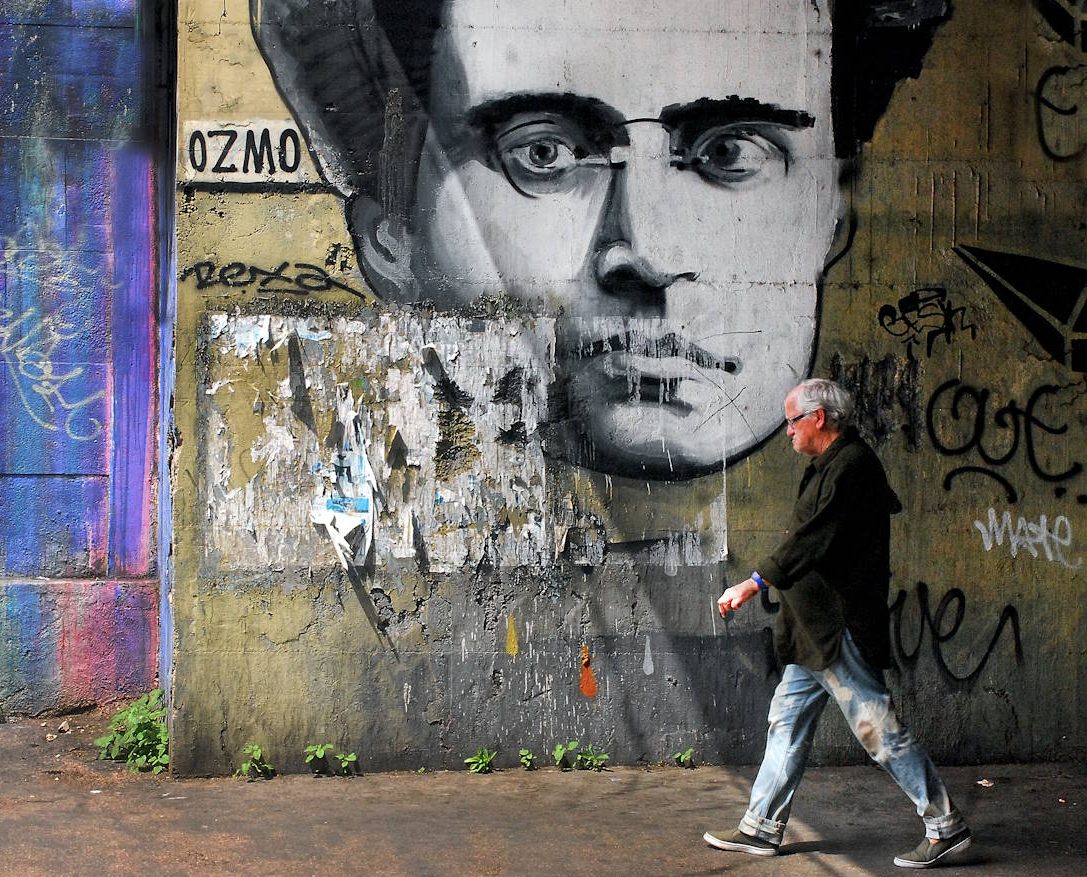On Freud, Gramsci, and the Educating Power
in the The Modern Prince – Antonio Gramsci
I have the disadvantage, or I should say the advantage: of having lived through the application of Marxist-Leninist theory in real life.
I underline that I still don’t understand what kept me from being entirely formatted, as everyone else, or as the most part of my compatriots seemed to be.
I will do my best to share my understanding, despite my harsh accent!
We’ve seen how Gramsci transformed the Prince into a “collective will.”
My question is: can that “collective will” escape the paternal Freud logic?
Can power be re-educated — or does the father always return?
And how did the party, meant to represent the people, so often become the instrument of the leader?
Machiavelli’s Prince is not an “abstract political doctrine” but the embodiment of power in a concrete figure — the CONDO-TTIERE, a mercenary leader who symbolizes a “collective will”. His task was to build the State.
Antonio Gramsci takes this image and transforms it.
In modern society, the Prince can no longer be an individual. The world is too complex for one person to express the” people’s will”.
The Modern Prince, for Gramsci, is an organism — the political party.
Gramsci did not invent the concept of political party, it already existed. Lenin did. He defined the party as a vanguard, disciplined and centralized group, whose mission was to take the power. Gramsci reinterpreted it.
According to him: the role of the party must continue after the revolution.
It must not only lead but educate, not only command but create Hegemoni = moral & intellectual leadership capable of obtaining consent rather than imposing coercion.
- Lenin built the engine of the party
- Gramsci gave it the soul!
The Modern Prince becomes a living myth — not a man, but a “collective will”, a cultural and ethical force that builds a new society.
Politics, for Gramsci, is also education: the creation of a new common sense, a new form of humanity!
Gramsci was inspired by Georges Sorel, who saw the myth of the Prince as the “emotional image” that can move people to action. Sorel was an engineer; he never left the factory. His contribution stopped at the “trade union” and the “general strike.”
Gramsci went further: the myth must take concrete form through organization and institutions.
The party, as Modern Prince, is precisely that form — the meeting point of theory and action, intellect and passion.
Freud’s Shadow: The Tragic Return of the Father
Freud reminds us that every human carries within the interna-lized father — the desire for authority, and the tendency to reproduce it.
Without counter-power, even the party can fall back into autho-ritarian patterns. Gramsci saw this danger.
His answer was structural: participation, culture, and the constant renewal of hegemony through education.
But history proved how fragile this balance is. After Lenin, almost every communist revolution repeated the old pattern:
Stalin, Mao, Hoxha, Ceausescu, Kim Il-sung — each began as the “voice of the people” and ended as the father of the nation.
The dream of collective freedom returned to paternal domination. They kept Lenin’s machine and lost Gramsci’s soul.
Gramsci died without seeing this tragedy. His optimistic vision would bild : a politic where authority becomes understanding, and obedience is transformed into responsibility. Machiavelli’s Prince founded a State; Gramsci’s Modern Prince aspired to found a society. It is still a horizon.
The New Man
Gramsci’s final hope was the creation of what he called the “new man.” Am I the product of the new man (woman) or I escaped, this is a waste question!
This idea does not mean an artificial being shaped by ideology, but a moral and intellectual transformation, the result of education, culture, and lived participation.
The new man is born from the long labor of hegemony: the process by which people learn to govern themselves, and power learns to renew itself.
Ideally the new man is the citizen capable of acting not by obedience but by conviction — the “human being” for whom “freedom has become a habit”.
In this sense, Gramsci’s revolution is not only political or economic; it is anthropological.
The Modern Prince = the party, the collective will = is meant to form this new man, who resists the return of the father not by rejecting authority, but by transforming it into responsibility and understanding.
And maybe that’s why my own experience still echoes here.
They called it Marxism–Leninism — the union of Marx’s theory with Lenin’s method to adapt it to the Russian revolution. But once it became a doctrine, it stopped being a dialogue.
Lenin’s strategy was turned into a system; Marx’s critique into a dogma.
And Stalinism sealed it: one Party, one truth, one father.
In that world, there was no room for Gramsci’s open thought, his faith in education, culture, and renewal.
He was too plural, too human, too dangerous for orthodoxy.
So the official “Marxism–Leninism” survived, but the Gramscian spirit = the idea that power must learn, not just rule was quietly erased.
That’s the world I grew up in.
And maybe that’s why I keep asking: can we still educate power, or are we condemned to live inside the father’s return?
And perhaps that is where my own question returns: If every system eventually asks for its father, maybe the only true revolution left is to educate power itself! to teach it to think, to doubt.
Concerning the new man: the question remain: it is possible to build it in a life time? knowing that we have printed in as “the tape”! To change the patterns! It is a long processus.
Note : Gramsci – Gramshi was Arbëresh.
(c)klarabudapost. All right reserved.



